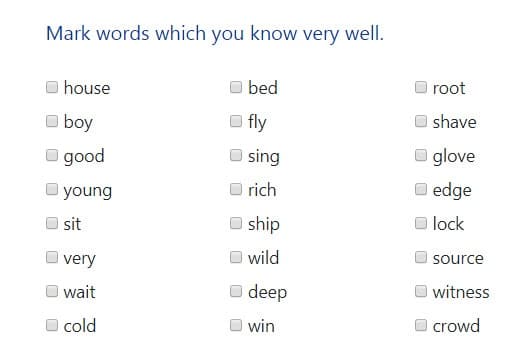Building English Fluency through News Story Analysis – level 2
03-02-2024 15:00
Reading in English is one of the best ways to improve your language skills. The only question is what should you read? Social media posts are fun to read but they don’t help you build strong English skills. People use many slang words on social media. Often, their grammar is not correct and they don’t use proper punctuation.
You could read magazines. However, magazines use different types of English, depending on who the magazine’s audience is. A fashion magazine presents you with common English language usage while magazines about photography could include technical language. You might find a lot of specialized words in magazines, too. Such reading material might not help you build English fluency.
How about reading books? This type of English reading material will help you build your vocabulary. Books can show you how native English speakers use words to create pictures in readers’ imaginations. Books usually use proper grammar and more advanced vocabulary. But they present one style of English: the author’s.
Reading the news in English presents you with many advantages. News articles use standard English words and phrases to communicate ideas. Every news article is written using proper grammar and punctuation. News stories don’t reflect one person’s ideas, beliefs or language skills. They represent facts, written in a neutral tone.
As you think about what type of reading material could help you build English fluency, you must also think about the purpose of reading. Learning new words and studying advanced English writing help you build your vocabulary. However, the main reason for reading is to gain an understanding of the texts you read.
Novels, magazines and social media posts reflect the culture those writers live in. To understand them, you must know about the culture in English-speaking countries. However, to understand news stories written in English, you only need to understand the words you read.
Keep your dictionary close as you read news stories so you can look up words you don’t know. You may choose to read the whole article and underline each word you don’t know. Or you can stop reading to look up a new word in the dictionary. Once you discover a word’s meaning, search for all of its related words: nouns, adjectives or adverbs, verbs, comparatives and superlatives.
The best way to master new words is to use them right away. So as you read a news story, keep a notebook and pencil nearby. When you meet a new word and its ‘family’ of related words, write a sentence using each form of the word. This method helps you understand the word and how to use it.
As your understanding of English words grows, give yourself a new challenge: analyze the news stories you read. Is the news good or bad? How does it relate to other news stories you have read? Often, news stories deliver information that’s simply good to know. Sometimes, the news reports on events that could affect your daily life.
News stories cover different categories: business, fashion and style, sports and current events. You may enjoy reading opinion articles or the Lifestyles section of the newspaper. It contains articles about social events, food and other activities. Articles in this section can help you learn more about the culture in English-speaking countries.
The best type of news to build English fluency is current events. Your ESL tutor in London might recommend these news stories to grow your vocabulary. They may even give you a news story to read and analyze as a homework assignment.
Which type of reading material do you think is most effective for improving English fluency?
LEARN 3000 WORDS with NEWS IN LEVELS
News in Levels is designed to teach you 3000 words in English. Please follow the instructions
below.
How to improve your English with News in Levels:

Test
- Do the test at Test Languages.
- Go to your level. Go to Level 1 if you know 1-1000 words. Go to Level 2 if you know 1000-2000 words. Go to Level 3 if you know 2000-3000 words.

Reading
- Read two news articles every day.
- Read the news articles from the day before and check if you remember all new words.

Listening
- Listen to the news from today and read the text at the same time.
- Listen to the news from today without reading the text.

Writing
- Answer the question under today’s news and write the answer in the comments.

Speaking
- Choose one person from the Skype section.
- Talk with this person. You can answer questions from Speak in Levels.
Stock images by Depositphotos


